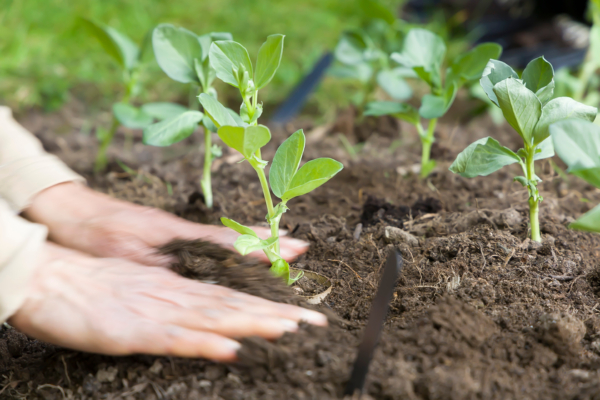Tired of the hustle and bustle of the city? Nowadays, more and more young people in Shanghai are opting to rent plots of land in the suburbs, where they can grow their own vegetables, pick fruits, and experience a taste of rural life. They see this as their “dream days,” particularly soothing and healing. Although it requires money and effort, their motivation goes beyond saving on grocery bills; it’s about buying a good mood and finding a sense of relaxation.
According to a report from Shangguan News on June 16, white-collar worker Xiao Zhou has been updating his daily routine of planting vegetables on the Xiaohongshu platform and has now persisted for 31 weeks.
At the age of 32, Xiao Zhou works in the chemical industry in Zhangjiang. A year ago, he saw online that there was a farm in Pudong Sunqiao renting out vegetable plots to the public, and he immediately went to inspect it, thinking, “Renting a piece of land will allow me to unleash my potential and grow whatever I love.” The plot of land he chose, 100 square meters, costs 1999 yuan per year.
With 100 square meters, he can plant rows of eggplants, cucumbers, luffas, cowpeas, okra, a small patch of watermelons, corn, and even squeeze in some sunflowers.
During the peak harvest season of summer, the vegetables and fruits grow rapidly. Xiao Zhou mentioned that he has to visit the plot several times a week to harvest in time; otherwise, it would go to waste. He takes pride in nurturing the fruits and vegetables himself, but sometimes he feels overwhelmed by the amount produced.
In Baoshan Gucun, 27-year-old electrical design engineer Xiao Liang named the rented plot of land after his daughter. A year ago, he saw on a review website that Qiyang Village’s Qiyuan Farm offered open plots for rent. He rented a 60-square-meter plot for 6000 yuan per year and started a weekend life as a “landlord” with his wife and daughter.
Watching his nearly four-year-old daughter holding mini tools, diligently tilling the soil and watering, warms Xiao Liang’s heart.
Covering 18 mu, Qiyuan Farm is just beside the Yunye Hualu Cafe, managed by Jack Ma’s son and his wife. Initially, they aimed to provide customers with a richer agricultural experience and introduced three options for renting land for planting – 20, 40, and 60 square meters. They were surprised that the farmland became more popular than the cafe. Jack Ma’s son recalled, “In the first month of opening, we rented out 95% of the plots.”
As his daughter enjoys herself, Xiao Liang views weekend farming as relaxation from his busy work life, describing it as a “therapeutic labor.” The more hectic work becomes and the greater the pressure, the more important it is to step into the fields, sweat, and work, as Professor Liu Yue from the School of Architecture and Urban Planning at Tongji University calls it, “a sensory experience of life.”
Seeing friends drool over the spinach, bok choy, cilantro, and lettuce grown at home, Xiao Liang feels proud. Sometimes he magnanimously says, “I’m giving these to you.” In the vegetable planting exchange group, opinions on the best combinations and recipes for the produce are shared. If someone needs something missing, there’s always someone ready to offer, “I’m at plot X, come over to get it.”
An agricultural economics scholar once mentioned that the market for renting land for planting vegetables may not be very large. On the one hand, costs are high, not only in terms of land lease fees but also for seeds, fertilizers, tools, and transportation expenses. It can be physically demanding for urbanites with no farming experience. On the other hand, young people have diverse interests, and this enthusiasm may not last.
Last week, at the Baoshan Luoqing Orchid Festival, a mother considering joining a local shared garden was hesitant. The annual rent for a 30-square-meter plot was 2280 yuan. She said, “This price is a bit high, and we don’t have time every week to take care of it. The semi-managed model requires an extra fee of 50 yuan per watering and fertilization, so I’ll think about it.”
For operators, running shared gardens also incurs hidden costs. Jack Ma’s son mentioned that before the Qiyuan Farm was opened, they spent weeks and millions of yuan improving the soil to restore its fertility. Since Gucun lacks skilled farmers, the couple has to bring people from northern Luoqing. Without these investments, if people felt dissatisfied with the outcomes, they would not continue.
Young people’s love for renting land for planting vegetables is not merely about considering it from an “economically practical” aspect; there may be a greater component of buying into the emotional value.

